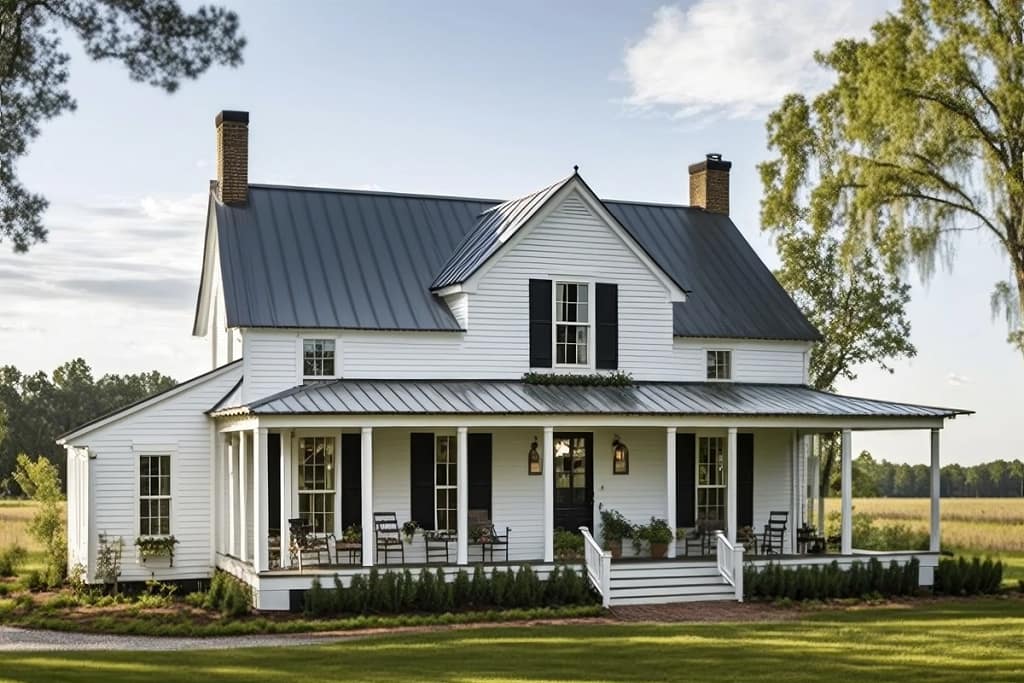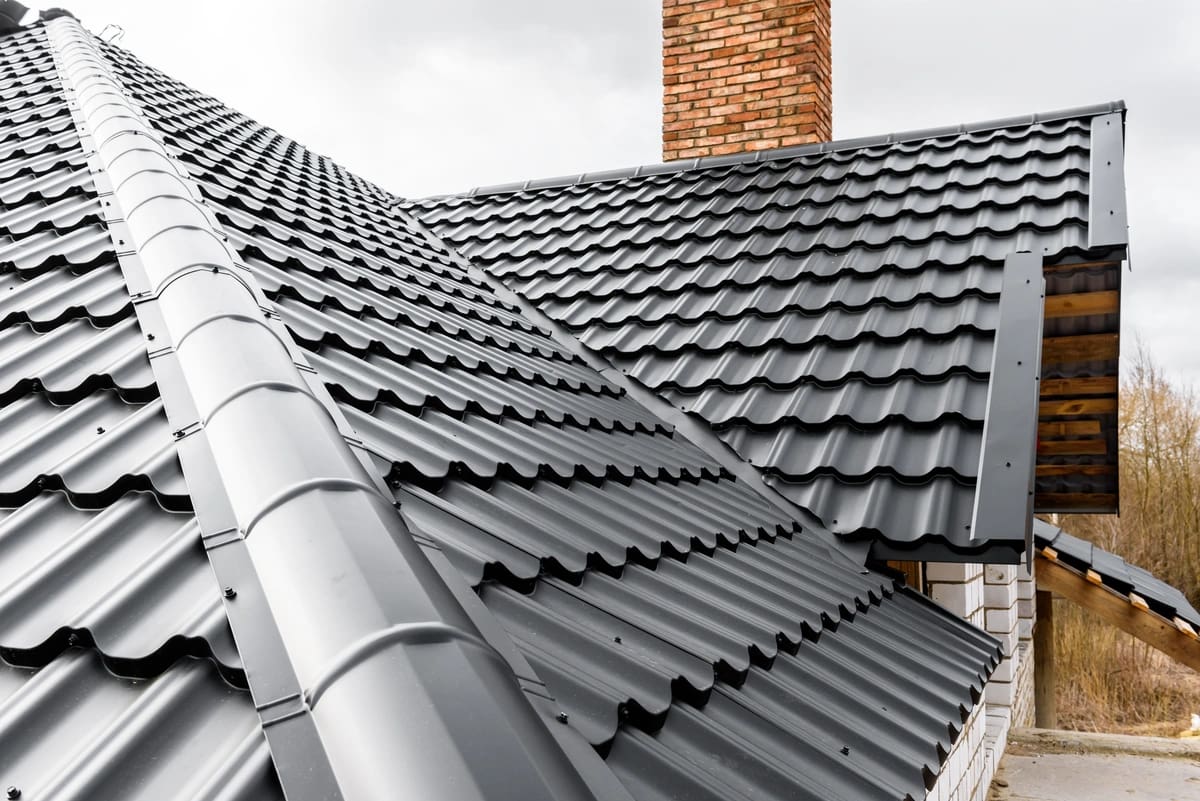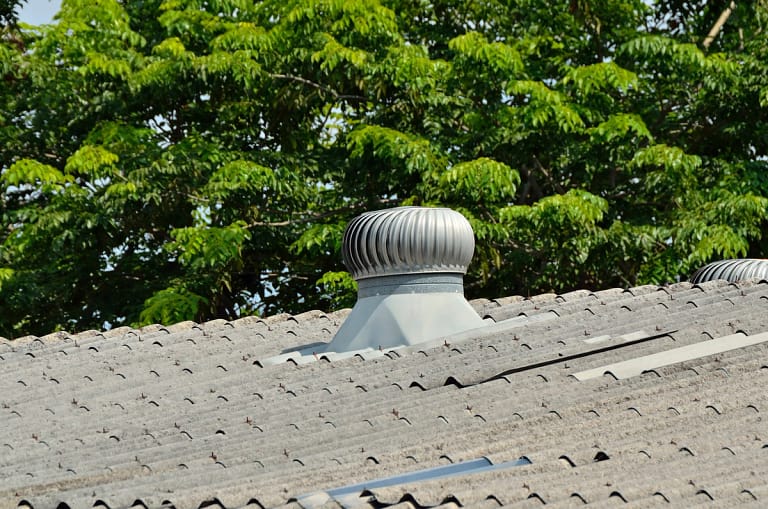If you’re pondering the idea of upgrading your roof or perhaps switching to a metal roof, you’re in the right place. We’re about to dive deep into the fascinating world of metal roofing, specifically, how long these bad boys can protect your home. So let’s explore the ins and outs of the average lifespan of a metal roof together.
Inside this blog:
- The benefits of metal roofs
- How long a metal roof typically lasts
- 8 factors that influence the longevity of a metal roof
- 7 key steps to maximize the lifespan of your metal roof
Keep reading to learn more about the amazing perks of metal roofs and how long they can last to protect your home!
Why Metal Roofs Are a Hot Choice 🔥

Before we jump into the nitty-gritty of metal roof lifespans, let’s quickly remind ourselves why metal roofs are all the rage:
- Durability: Metal roofs are built tough to withstand the elements, from heavy rain to scorching sun and everything in between.
- Energy Efficiency: They’re energy-efficient, reflecting sunlight and keeping your home cooler in the summer, which means lower energy bills.
- Low Maintenance: Metal roofs require minimal upkeep, freeing up your weekends for more enjoyable activities.
- Eco-Friendly: Many metal roofs are made from recycled materials and are fully recyclable at the end of their lifespan, making them an environmentally conscious choice.
- Aesthetic Appeal: With a variety of colors and styles, you can choose a metal roof that matches your home’s aesthetics, adding to its curb appeal.
How Long Does a Metal Roof Last? 🕰️
Now, let’s get to the juicy part – how long can you expect your metal roof to last? Well, it depends on various factors, including the type of metal used, your location, and how well you maintain it. But on average, metal roofs can stand tall for 40-70 Years or More!
Yes, you read that right! The typical lifespan of a metal roof ranges from 40 to 70 years or even longer. That’s like having a roof that doesn’t age a day! But don’t think it’s just the luck of the draw. Proper installation, quality materials, and routine maintenance play crucial roles in achieving this impressive longevity.
8 Factors that Influence Lifespan 🌦️
Now, let’s break down some of the factors that can affect how long your metal roof will protect your home:
1. Metal Type
Different metals have different lifespans. Steel, for example, is known for its durability and can last a long time. However, premium metals like copper and zinc can last even longer, potentially exceeding the 70-year mark.
2. Coatings and Finishes
The type of coating or finish applied to your metal roof can impact its lifespan. High-quality coatings can enhance the metal’s resistance to rust and corrosion, prolonging its life.
3. Maintenance
Routine maintenance is essential for any roof. Cleaning debris, checking for loose fasteners, and addressing any issues promptly can significantly extend your metal roof’s lifespan.
4. Climate and Environment
Your location matters! Areas with extreme weather conditions, high humidity, or heavy pollution might have a more significant impact on your roof’s longevity. Regular inspections can help catch problems early.
5. Installation Quality

A proper installation by experienced professionals is crucial. A poorly installed metal roof can lead to premature issues that affect its lifespan.
6. Roof Pitch
The pitch or slope of your roof can also influence how long your metal roof lasts. Roofs with steeper pitches tend to shed water and snow more efficiently, reducing the risk of damage.
7. Material Thickness
Thicker metal panels are more durable and tend to have a longer lifespan. When selecting your roofing material, consider the gauge or thickness of the metal.
8. Ventilation
Proper roof ventilation can prevent moisture buildup, which can lead to corrosion and other issues that affect the roof’s longevity.
What Can You Do to Maximize Lifespan?
Now that we’ve covered the key factors that influence your metal roof’s lifespan, let’s explore 7 practical steps you can take to ensure it lasts as long as possible:
1. Regular Inspections
Schedule annual roof inspections to catch any issues early. Look for loose fasteners, damaged panels, or signs of rust.
2. Clear Debris
Remove debris such as leaves, branches, and dirt from your roof regularly. Accumulated debris can trap moisture and lead to corrosion.
3. Address Issues Promptly
If you notice any problems during your inspections, don’t procrastinate! Address them promptly to prevent further damage.
4. Proper Ventilation
Ensure your roof has proper ventilation to prevent moisture buildup, which can lead to rust and other issues.
5. Professional Installation and Maintenance
Invest in professional installation and hire experienced roofers for maintenance and repairs. Quality workmanship goes a long way in extending your roof’s life.
6. Choose High-Quality Materials
Opt for high-quality metal roofing materials with durable coatings and finishes. Quality matters when it comes to longevity.
7. Consider Climate
If you live in an area with harsh weather conditions, choose a metal roof that’s well-suited to your climate to maximize its lifespan.
Get A Metal Roof that Stands the Test of Time
In the world of roofing, metal roofs are the true champions of longevity. With an average lifespan of 40-70 years or more, they offer homeowners unparalleled durability, energy efficiency, and low maintenance requirements. By considering the factors that influence your metal roof’s lifespan and taking proactive steps to maximize its longevity, you can enjoy decades of reliable protection for your home.
So, when it comes to choosing a roofing material that stands the test of time, metal roofs are an excellent investment that will keep your home safe and secure for years to come.
Contact our top-notch team of roofers at Premiere Roofing & Gutters today and we’ll make sure your next roofing project goes as smoothly as possible. We’re excited to help you upgrade your property with a beautiful and long-lasting roof!




